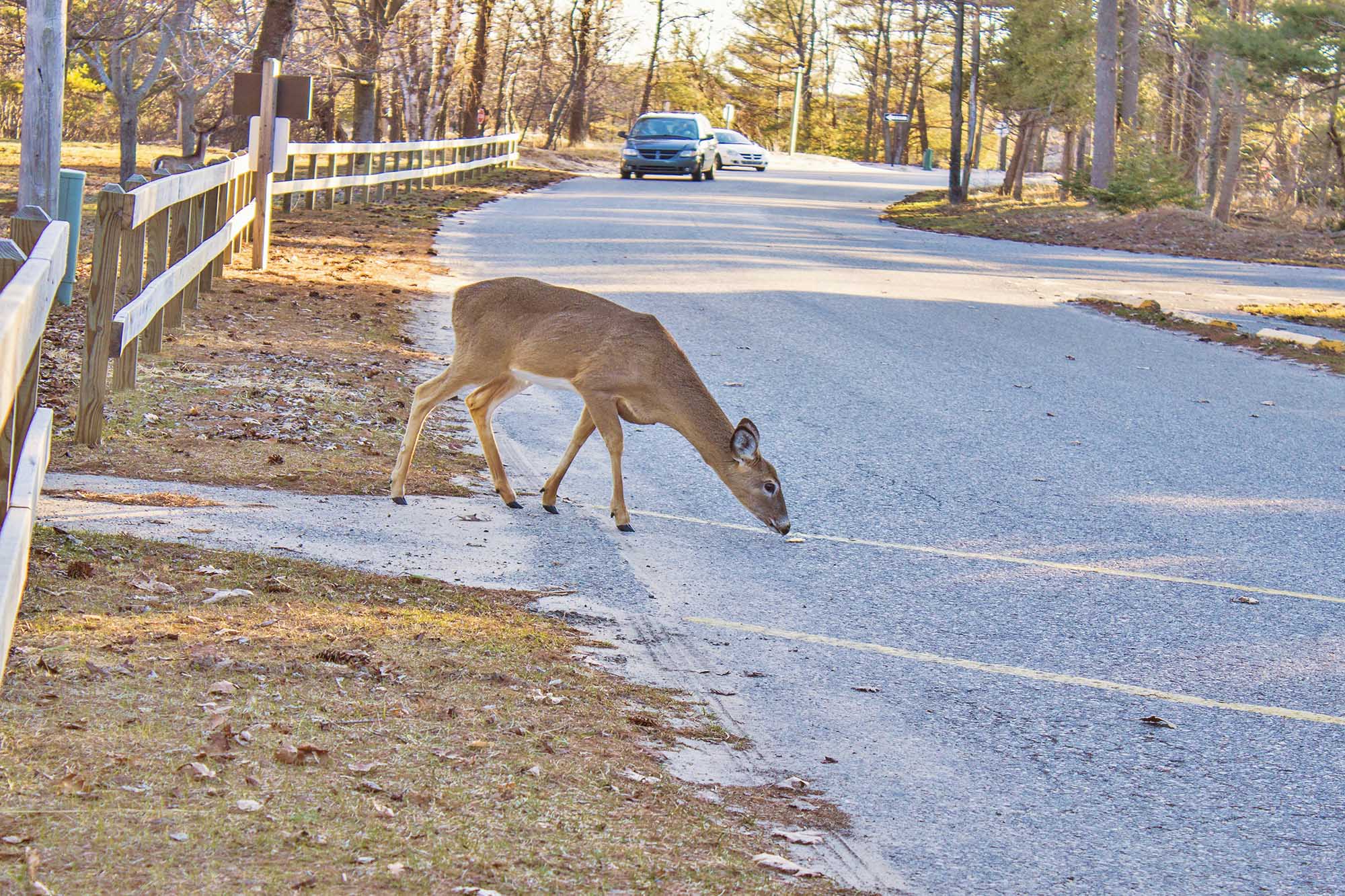Do Car Deer Whistles Work?
Unpacking the science surrounding these devices, meant to help prevent car accidents.
 Getty Images
Getty Images
QuickTakes:
Deer whistles for automobiles are often seen in areas of the country where forests and fields conceal wildlife that can unexpectedly roam onto roads and highways. These animal encounters can occur during the day or night and can pose a significant hazard to drivers.
Deer whistles are said to warn wildlife away from oncoming vehicles, and, given how much damage hitting a deer can do to your car, it's reasonable that people would be willing to try the whistles out. There is little in the way of robust scientific evidence, however, to support their use.
Deer Whistles Are Supposed to Scare Off Deer and Other Animals
A deer whistle for a vehicle is a small plastic funnel designed to attach to the exterior, typically by double-sided tape. When you're driving at low speeds, the whistles are largely silent.
Once you push past around 35 mph, though, the air rushing through the cylinder emits a high-frequency sound or whistle. The range of this noise is far above what humans can perceive, but whistle manufacturers claim the sound is detectable by animals — particularly deer.
Electronic deer whistles, powered by a vehicle's 12-volt battery, produce a similar type of sound but rely on electricity to operate the whistle rather than airflow. This allows these types of deer whistles to operate at any speed.
Impact With a Deer Can Be Devastating and Costly
Unlike a deer call, designed to direct these large game animals toward hunters, an automotive deer whistle is intended to do the opposite. Whistle manufacturers claim the sound produced by deer whistles is loud and irritating enough to warn the animals that traffic is on the way. The deer in response should stay off the road and thus avoid leaping into the path of your vehicle, according to some whistle manufacturers.
Any tool to help keep motorists and deer separate is likely to find a market, especially in areas of the country that are primarily rural, with large wildlife populations. National insurer State Farm estimated there were 1.8 million animal collisions on U.S. roads during the 12 months stretching from summer 2022 to summer 2023. The majority of animal-related accidents involve deer, killing more drivers than any other wildlife.
Whether Deer Whistles Really Work Is up for Debate
Unfortunately, there's very little scientific evidence showing that deer whistles provide meaningful protection for motorists seeking to avoid a collision with wildlife. Some of the science surrounding this technology indicates that the whistles have little to no effect in terms of dissuading deer from lingering near or wandering onto roads.
Studies from the University of Georgia that were aimed at verifying the claims made by deer-whistle manufacturers discovered that the animals' behavior wasn't affected in any meaningful way by the noisemakers.
According to insurer Progressive, other studies questioned whether the ultrasonic sounds produced by deer whistles were loud enough for deer to hear and react to in time to avoid traffic. Overall, scientific literature has been unable to find a firm link between the use of deer whistles and the response of deer or a reduction in the chance of colliding with a car.



